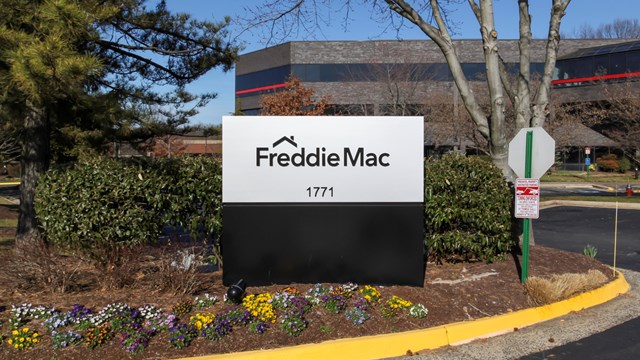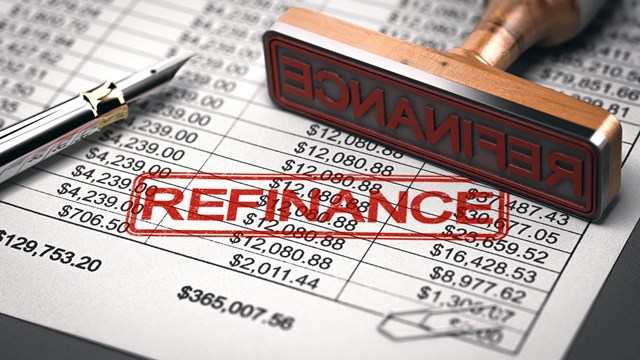
The leading factor responsible for the Great Recession—fraudulent mortgage lending—remains a thorn in the side of the nation’s fledgling economy. It started with the false promise of home ownership to many susceptible, under-financed people many of whom were wrongly awarded mortgages by lenders promising a shot at the American Dream. Interest rates increased along with employment rates, monthly bills mounted across the nation leading to default, and then the bottom fell out.
This reality, coupled with angst voiced by Tea Party and Occupy Wall Street supporters against an otherwise unchecked Wall Street, left many Americans disenfranchised. In what amounts to an eleventh hour move, President Barack Obama recently appointed Richard Cordray as director of the U.S. Consumer Financial Protection Bureau, which was created as result of the Dodd-Frank Wall Street Reform and Consumer Protection Act. The Bureau is a one-stop shop safeguard for borrowers, while Dodd-Frank is in place to better police lenders and implement financial regulatory reforms.
While a step in the right direction, the financial meltdown has adversely affected all borrowing including co-ops and condominiums which in many respects has changed the playing field. Refinancing an underlying mortgage is no longer an easy task although co-ops are seemingly in the best position possible.
“In every other real estate category, there has been a real significant impact on the availability and—more so—the ease of closing commercial loans on real estate. However, co-ops have become the darlings of the industry, because co-ops are almost always very low loan-to-value propositions, a co-op only borrows what they need, and they have their own internal government keen on keeping their mortgage low,” says Steve Geller, senior associate and director of the Co-op Select Group at mortgage lender Meridian Capital Group, LLC. Geller adds that the firm has financed more than $1.5 billion in underlying co-op loans in 2011.
Geller explains that typical underlying co-op loans are less than 35 percent of the value of the property, so if there is a default, the bank only has to sell the building for 35 cents on the dollar to recover their loan. In Manhattan, for example, the loan-to-value is usually below 10 percent with many less than two percent. “I worked on a co-op loan where the underlying loan was 35 percent of the value of one residential unit in the building,” says Geller.
Greg Winter is the president of the New York-based Winter and Company, a commercial mortgage broker for multifamily apartment buildings, co-op underlying mortgages, mixed-use properties, retail properties, office buildings, hotels, industrial and net-leased properties. Winter explains that there is simply a difference between co-ops and condominiums when it comes to mortgages and refinancing. “Co-ops can and typically do have underlying mortgages and condominiums cannot have an underlying mortgage,” says Winter.
Geller expands upon the inherent differences. He explains that a co-op is a business and the apartment owners don’t buy their apartments rather they are buying shares of a corporation. To this end, they are shareholders of a corporation that runs the apartment building. Thus, their shares entitle them to reside for as long as they own those shares and as long as the corporation is viable. “From a real estate perspective, the building is still there, and available as collateral for a mortgage,” he says.
“A condo,” he adds, “is split into individual tax lots for each unit, and buyers of apartments actually own their apartments, the walls, windows, etc. When the condo is filled up, there is no building left to use as collateral for a mortgage. The building was essentially broken up and sold apartment by apartment.”
As is the case with a single family homeowner, there are other fees that are rolled into the mortgage payment which become the responsibility of the shareholders. “The co-op’s mortgage payments are combined with the co-op’s other expenses such as real estate taxes, management and insurance,” says Geller. “Those expenses are divided up on a cost-per-share basis. Each apartment resident owns shares of the corporation typically commensurate with the size of their unit. The expenses per share are simply multiplied for each unit according to the number of shares of each apartment, and the owners pay that amount.”
Why Refinance?
The question many boards are faced with is: when, if at all, to explore refinancing an existing mortgage? The scenarios can be far-reaching but Winter offers two common examples. “Typically the reasons are that they want to take advantage of lower interest rates or they need additional funds to pay for repairs or capital improvements,” he says.
While it might make good sense to capitalize on a more favorable mortgage rate, Neil Sonenberg, CPA, and a partner at Rosen Seymour Shapss Martin & Company LLP, says it’s not always advisable.
“More and more we see payments going toward amortization and not the principle and then co-ops are left with a balloon payment at the end of the period,” says Sonenberg. “I’d rather see co-op shareholders pay down the mortgage so they are paying the points down slowly rather than refinancing.”
Since upgrades, maintenance and improvement projects are to be expected, in some cases the project is small enough not to require the examination of refinancing an existing mortgage, but not always. “Any work on the façade, roof, boiler, elevators, or any common area or amenity is shared, also on a per-share basis, among the co-op community. If these repairs are relatively minor, the co-op can add an additional assessment,” says Geller, adding that it is an additional fee to the shareholders specifically to cover the needed repair or improvement. “That assessment can be spread over several months depending on the need. If the repairs or improvements are too costly for an onerous assessment, the co-op can restructure its mortgage debt to borrow the additional money needed for the work.” Refinancing the underlying mortgage is the “cheapest” source of additional money a co-op has to raise, he notes.
If the decision is made to refinance, a co-op board must do its due diligence and partner with an experienced broker who has handled similar-sized buildings as not every broker understands the unique characteristics of a co-op.
“Find an experienced commercial mortgage broker who has refinanced hundreds of underlying mortgages and works with a wide range of lenders who can help to advise the board and negotiate the best possible terms for the co-op’s new loan,” says Winter. He adds that the co-op’s managing agent, accountant and lawyer should also be party to this all-important process.
While “big banks” have been the focus of scrutiny from government regulators and customers alike, when it comes to refinancing a mortgage, Sonenberg feels it is a co-op’s best bet. “I prefer national or commercial banks for lending and these various banks can help co-ops get their mortgage with good terms,” he says, adding with the provision that the co-op is in good financial standing.
Lending Requirements
For many boards, the leading question is: what criteria are lenders looking for? Winter offers the following answer. “Lenders love buildings that are 100 percent owner-occupied. Consider that an ideal,” he continues. “The closer to that, the better. Lenders also love a low loan-to-value ratio which is very often the case with co-op buildings.”
Sonenberg adds that lenders favor co-ops that conduct stringent in-house audits and those that have a healthy reserve fund. “Lenders look for a co-ops with good cash flow and that meet their financial obligations. The closer they get to their break-even level, the more likely they will get favorable interest rates.” In today’s market, well-suited co-ops can expect rates as low as four percent on a 10-year fixed mortgage.
Not all cooperatives are in good standing due to hardships experienced by shareholders. To make ends meet, many unit owners have looked to lease or rent out their units; however, this is considered a lender red flag. “Lenders generally do not like a lot of sublets. Financial analysts will think that people that are renting will not care about the property as much as the owner, which decreases the value,” says Sonenberg. “There are very stringent rules for subletting; but are there illegal sublets occurring? Yes, likely everyday of the week.”
Deciding upon a lender for refinancing a mortgage places the board in the position where it must determine the best possible deal so it can be approved by the majority of shareholders. In some cases, Sonenberg explains that top-tier co-ops might hold a $15 million or $20 million dollar mortgage. If a board can take appropriate steps to refinance and realize a one or two percentage point savings, they can save hundreds of thousands of dollars over the long term.
“When it comes to approval, it depends but normally the board has to vote on it,” says Sonenberg. He doesn’t think a fixed percentage is required, but adds that “generally speaking the board will need a majority vote of the shareholders.”
While Geller agrees with Sonenberg, he adds, “Co-op board members represent the shareholder community and any significant investment is voted on by the board, if not the entire community,” he continues. “This depends on the charter of the co-op, in terms of which issues go to a board vote and which to a general shareholder vote.”
W.B. King is a freelance writer and a frequent contributor to The Cooperator.









Leave a Comment